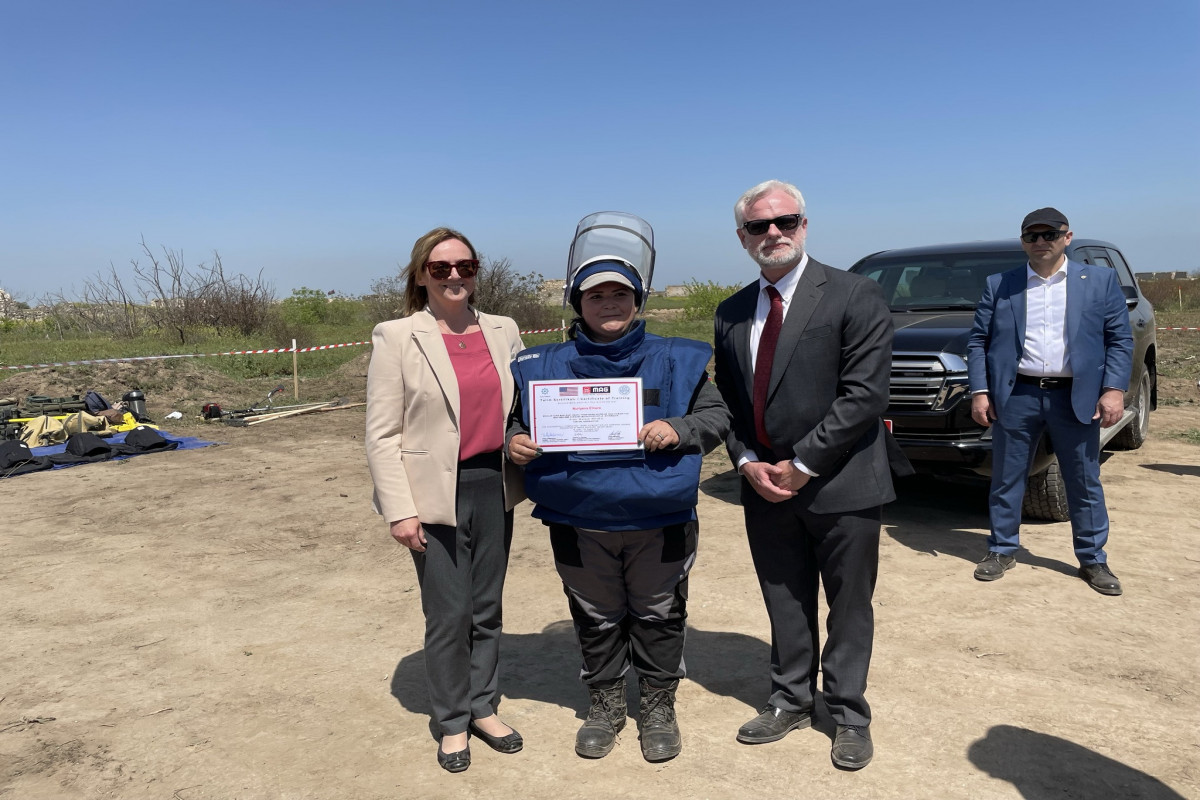Ambassador Extraordinary and Plenipotentiary of Pakistan to Azerbaijan Bilal Haye’s interview with APA
– During the 44-day war Azerbaijan liberated its territories occupied by Armenia in the early 90's of the last century. In those days, Pakistan repeatedly stated its support for Azerbaijan and its right of self-defense. How do you assess the results of the war?
– I wish to start by congratulating the Government and people of Azerbaijan on this very remarkable triumph in the recent war commonly known as Patriotic War. Pakistan supported the position of Azerbaijan in this campaign which we consider as a legitimate and just struggle because you were fighting for the territorial integrity of your country. To fight for self-defense and territorial integrity for one's country is a legal right under international law. It is a position that was supported by various UN Security Council resolutions adopted in 1993. It was because of these reasons that Pakistan supported Azerbaijan in this campaign. We wish the people of Azerbaijan well on this victory as well as during the next phase of reconstruction in the liberated areas.
– Azerbaijan and Turkey are already taking steps to restore economic and transport relations with Armenia. Does Pakistan have a plan on normalizing relations with Armenia? In the near future, will we see the building of diplomatic relations between the two countries, Pakistan and Armenia, as well?
– Pakistan is the only country in the world that does not recognize the state of Armenia. But Pakistan does not have a direct conflict with Armenia. We are not part of this region. Pakistan’s stance on Armenia is linked to the sensitivities of the brotherly countries, Turkey and Azerbaijan. So, if Turkey and Azerbaijan are able to normalize relations with Armenia, as we saw things moving in the Moscow meeting regarding the implementation of the 9 November Ceasefire Agreement for unblocking transportation and communication links between these countries, we can review our position. If everything moves well and the relationships between Azerbaijan and Armenia and between Armenia and Turkey are normalized, of course, we will also consider normalizing relations with Armenia. We sincerely hope that someday this could be realized. It is always good to have mutually beneficial relations with countries of your region where all countries can benefit from economic projects, engage in bilateral trade and promote people-to-people contacts. It will be a good scenario for all the countries of the region.
– As you also have seen during the 44-day war, the flags of Azerbaijan Pakistan and Turkey raised together and waived on the streets of Baku. What were your impressions on these scenes, Mr. Ambassador? I would like to ask your opinion, what are the reasons that make Azerbaijan and Pakistan so close?
– Yes, let me say it was a great experience. It is an experience that you do not get to have in many places outside your country. Seeing my country’s flag flying with the flag of the host country was a very moving experience for me and I am thankful to the people of Azerbaijan for the respect and honor they had extended towards Pakistan, toward the Pakistani flag. There are mutual goodwill and respect in Pakistan for the brotherly country of Azerbaijan.
As you rightly pointed out the basis of this affection is very deep-rooted. From the days of the beginning of your independence, Pakistan supported your cause. Pakistan had also played a significant role in the adoption of UN Security Council resolutions in 1993. Pakistan had always valued the struggle of the people of Azerbaijan to gain independence. The people of Pakistan had also made a long constitutional struggle to gain independence from the colonial rule of the British empire. So, I think the unity of aspiration to achieve independence and to become a sovereign country was a building block, a connecting link between our two countries. Now, I believe that there is also a mutual desire among the peoples of our countries that we want to be independent, sovereign, and peace-loving countries. We want prosperity for the people of our countries, and that is why we are working towards the normalization of relations with the countries in the region.
– In December, the second round of Pakistan-Azerbaijan bilateral political consultations were conducted through a virtual link. Mr. Ambassador, can you give information, the result of these consultations?
– Yes, the political consultations happened in December last year through virtual link because of COVID19 restrictions. The discussions were very comprehensive and wide-ranging. We covered all aspects of the bilateral relationship. We discussed the high-level political engagement, a political relationship that is excellent, very robust. We talked about the economic relationship, people to people relationship, the defense cooperation between the two sides. We discussed the full spectrum of the relationship. The first tangible outcome of that meeting was the visit of your Foreign Minister to Islamabad just a few days ago. He had excellent meetings with the Foreign Minister of Pakistan and also with the leadership of Pakistan - the President, the Prime Minister. His engagements in Islamabad, we believe, will help in further intensifying and deepening the relationship between our two countries.
– Military cooperation between Azerbaijan and Pakistan has always been in focus. Recently a delegation led by the Commander of the Air Force of Pakistan, Air Chief Marshal Mujahid Anwar Khan visited Azerbaijan. In this regard what is expected in terms of expanding Azerbaijani-Pakistani military cooperation?
– You rightly pointed out that our defense cooperation has been very robust and strong for a long time. Since Pakistan has a large military, we have offered training opportunities for the Azerbaijani soldiers in our military schools. I am very happy to share with you that over 250 Azerbaijani military personnel have been trained in Pakistan in the last few years. And that includes pilots and other professional soldiers who have been trained at Pakistani schools, for various types of training. We hope that this training experience, exchange of training will continue in months and years ahead. Pakistan’s Chief of Air Staff came here for a brief visit, last week. He held a good meeting with his Azerbaijani counterpart and also met with your Defense Minister, General Zakir Hasanov. They discussed potential cooperation in various areas including air forces. We hope that the continued cooperation at the various forces level will provide an opportunity to learn from each other's experience. Our military is interested to know and learn from the successful strategy of the Azerbaijani military because they have gained tremendous success in this war. Similarly, our side is happy to share its own experiences of fighting terrorism in the region, of facing an enemy that is much larger. In these areas of cooperation, the two sides can work together for the mutual benefit of our countries.
– As a continuation of military cooperation I would like to ask about the latest development on purchasing of Pakistani military planes by Azerbaijan? What is the latest development in this regard?
– In the past, the Azerbaijani air force had purchased a few training aircrafts from Pakistan called "Super Mushshak" training aircraft. This is a very good, small aircraft used for training of pilots. In fact, Turkey has also bought these aircrafts besides Azerbaijan. Recently Nigeria and some other countries also purchased those aircraft. Now, Pakistan has offered to sell its fighter aircrafts "JF17 Thunder" to Azerbaijan. It is more economical than other fighter aircraft in the market and it is indigenously built in Pakistan. It has great features of maneuvering, avionics, and all these techniques that are needed for a good fight in the air. We hope the ongoing discussions will conclude with a positive outcome. It will be good for the two countries to engage in that kind of cooperation which will strengthen the air forces of Azerbaijan.
– It is always stated that there is a huge potential for trade cooperation between the countries. Are you satisfied with the current state of cooperation in this area?
– I am definitely not satisfied with the current level of trade volume. There is immense scope to increase that volume and we are working towards that end. In the last week of December, we had a very important meeting of the Joint Working Group on Trade. Senior officials from the Ministry of Finance of Azerbaijan and the Ministry of Commerce of Pakistan discussed various avenues of cooperation on how to increase trade, particularly in times of COVID-19. Since physical interaction is limited these days, they have decided to establish digital joint business platforms. They have decided to host exhibitions through online mechanisms. They are also working to identify areas of respective comparative advantages. For example, there are certain sectors in which Azerbaijani products are more competitive and should enter the bigger market of Pakistan. Just imagine Pakistan has a population of over 200 million people, if Azerbaijani products enter in the Pakistani market, they will have a big opportunity for profit. Similarly, Pakistan would like to send certain products where Pakistan has a comparative advantage. Pakistan can offer many things from textile products to information technology to sports goods and so on. This is a priority of the governments on both sides to work and find ways to remove the bottlenecks through policy measures and then ensure the facilitation of trade between the two sides which will be beneficial for both countries.
– We know of discussions about the launch of direct flights between the two countries. Is there any progress on this issue?
– I met with the president of AZAL a few weeks ago. I am happy to share that there is complete understanding from both sides that as soon as the COVID19 situation improves and there is space for lifting the international restrictions, we will start direct flights between Pakistan and Azerbaijan. Both AZAL and Pakistani National Airline has completed the paperwork and I am hopeful that directs flights could begin by the summer of this year which will be a huge boost for not only bilateral trade but also for tourism and people to people contacts. Just imagine through direct flights you can travel to Pakistan in less then 3 hours. Right now because of transit, this journey is around 20 hours. But if we had direct flights, people from Azerbaijan can arrive in Pakistan in less than three hours. This means a lot. It means that you can go therefor business, for tourism and for many other things without any hassle.
Before COVID19, more than 40 000 Pakistanis traveled to Azerbaijan in 2019 alone which is a big number. We hope that once the direct flights start, this number will further increase. We are also interested to show the beautiful landscape of Pakistan to the people of Azerbaijan. Pakistan has some of the most breathtaking sites for tourism. We have tall mountains, the deep blue ocean, and vast deserts. We have culturally rich and very cosmopolitan cities. So there is a huge variety of things that Pakistan can offer along with its warm hospitality.
– On January 13, the second Pakistan - Turkey - Azerbaijan Trilateral meeting was held in Islamabad. How will this meeting contribute to further deepening relations among these three countries?
– The trilateral meeting that you mentioned took place in Islamabad where the foreign ministers of Pakistan, Azerbaijan , and Turkey participated and discussed a number of areas of mutual interest. In fact, this was the second trilateral meeting after the first session held in Baku in 2017. So, the Islamabad meeting happened after a gap of three years. But we are happy that the meeting revived an opportunity to view the situation especially after the successful conclusion of the war in Azerbaijan and the emerging new dynamics in the region. That meeting also provided the opportunity to look at the challenges confronting the three countries including COVID 19 and other challenges. The three Ministers adopted a very substantive paper “Islamabad Declaration” at the conclusion of the meeting. You can review that declaration where the ministers have agreed to further intensify cooperation in a range of areas like economy, trade, investment, people-to-people contacts, and cooperation on various emerging threats. So, this document will provide new avenues where we could further pursue cooperation among the three brotherly countries.
– In the statement issued by the Foreign Ministry of Pakistan on this meeting there was a part which drew my attention and I would like to ask. It was stated that the foreign ministers would discuss "new and emerging threats to regional peace and security". What are these "new threats"?
– Yes, this is very important to understand. Usually, in diplomatic parlance, we distinguish threats between conventional threats which are usually known to the people, known to the countries but new or emerging threats are more treacherous, tricky because they are emerging very subtly and are posing bigger challenges. Now if you ask me what would be the new challenges that confront our three countries, I would say challenges which are related to climate change phenomena. Because of climate change, there is a variation in the weather pattern which has a direct bearing on agriculture and in turn, could trigger mass migration along with adversely affecting the economy. So this is a very big challenge. In fact the developing countries like Pakistan, Azerbaijan are more vulnerable to these challenges. Moreover, in the newly liberated areas of Azerbaijan, we saw how the enemy has ruined and destroyed all the remnants of your heritage. They have destroyed the forests, the cultural and historical buildings. We are hearing terms like eco-terrorism. These are all, I would say, new threats. Similarly, in Pakistan, we are facing challenges from our eastern neighbor who has deployed a huge military force in the Occupied Jammu and Kashmir. They have militarized the high mountains in Siachen area. Because of the militarization of those areas, the melting process of high mountains glaciers increased which is a threat to the entire region. So this is a big challenge for us to work upon. Also COVID19 related challenges. It has impacted public health and also the economies. And now the next challenge is how the countries can work for equal distribution of vaccines. Because the equal distribution of vaccines will be a basic challenge in the coming months. Our two countries have to work together to ensure that our peoples have access to affordable and equitable distribution of vaccines to fight COVID19.
– However international law, in particular UN SC resolutions, stands by Azerbaijan and Pakistan but these countries have suffered from long-term conflicts. Even these days, there is a firm view that the Azerbaijani army carried out duties of the UN Security Council, which did not take any measure for the implementation of the resolutions, adopted by it, for years. It is very regrettable that sometimes power is more efficient and workable than resolutions, international law documents. Would be interesting to know your view...
– We heard the statement of your President and he rightly pointed out that Azerbaijan waited for almost 28 years to find a peaceful resolution of this conflict. I would say it was not a very complicated issue. It was an issue that involved the territorial integrity of Azerbaijan. The international law, the UN Security Council resolutions recognized those areas which you have liberated now through the military campaign as lawful territory of Azerbaijan. If the other side had an unlawful occupation of those areas it was an unjustified position. So your frustration with long and unending negotiations resulted in this military campaign and your forces were able to liberate those areas.
In case of Pakistan, we have this conflict of Occupied Jammu and Kashmir which is even older than the issue of Nagorno Karabakh. It has been pending on the agenda of the UN since 1947. India has occupied three fourth parts of Jammu and Kashmir against the wishes of the people of Kashmir. The United Nations has passed multiple resolutions which say that this dispute has to be resolved according to the wishes of the people of Jammu and Kashmir through a free and fair plebiscite. Now what is a plebiscite? It means that a referendum has to be held under the auspices of the UN where they will ensure that the will of the people of Kashmir is expressed through vote regarding their future accession with either Pakistan or India. This is a very fair deal that the territory has been illegally occupied by a state which does not have legal justification or control on that territory. Now the people of that area have the right to decide about their future. We are just saying to India that they have to respect those resolutions of the United Nations which India had agreed on because India was a party to those resolutions. But because of its hegemonic intentions and expansionist policy, India is now becoming a dangerous place for the people of Occupied Jammu and Kashmir. In today’s India, there is no place for Muslims and other minorities, whether they are Sikhs, Christians or low caste Hindus. All minorities are under serious threat in today 's India.
Under the Government of BJP, India has literally become a Hindu state. Except Hindus, all other minorities have to be eliminated which is a serious threat. It is a threat to the sovereignty of other smaller nations in the region like Sri-lanka, Bangladesh, Bhutan and Nepal who all are feeling threatened. We have been calling upon the international community that they have to fulfill the promise made with the people of Jammu and Kashmir because they are all parties to those resolutions. If a resolution is adopted in the UN, all members of the United Nations and the 15 members of the Security Council become guarantors of those resolutions. So it is their responsibility to honor that promise, to honor that commitment to hold the plebiscite in the State of Occupied Jammu and Kashmir and let the people of Kashmir speak what they want.
There are 11 resolutions regarding Jammu and Kashmir but because of double standards, commercial economic interests of the world powers, they look other ways when the implementation of those resolutions is asked. It is the collective responsibility of the international community; of all peace-loving countries to remind the UN that the very essence of creation of the UN was to protect the lives and liberties of the peoples, to ensure them the right of self-determination. The implementation of the right of self-determination is part of the UN Charter. And now that very cardinal principle of self-determination is under threat as for as the issue of Jammu and Kashmir is concerned. We will keep reminding the UN and all those powers who claimed to be the champions of human rights that they are forgetting, and shying away from an important responsibility in which all of them are stakeholders.
– As we know Pakistan annually celebrates February 5, the Day of Solidarity with Kashmir. I would like to ask the meaning of the day for Pakistanis.
– 5th of February is celebrated as Solidarity Day with the people of occupied Jammu and Kashmir. People of occupied Kashmir have been struggling for their right to self-determination. Pakistan has tried to engage in dialogue with India for a peaceful resolution of the dispute of Jammu and Kashmir and tried to raise this issue at the international fora. Unfortunately, because of Indian intransigence and Indian duplicity, the people of Jammu and Kashmir continue to suffer. Since The 1990s, 5th of February has been celebrated worldwide to express support for the people, for the rights of the people of Jammu and Kashmir. On that day, international seminars and conferences are held to raise awareness and inform the world about the sufferings of the people of occupied Jammu and Kashmir, how they are living, how they are suffering every day, and how they are being deprived of the very fundamental rights which are enjoyed by common people in the Western countries, in Latin American countries, in Africa, Asia and other parts of the world. But only in the Occupied Jammu and Kashmir, these rights remain suspended.
It is very surprising that India claims to be a democratic country, but they do not allow international organizations, human right organizations, and international observers to come and visit the occupied Jammu and Kashmir. Because they are afraid that all what they have done in Occupied Kashmir will be exposed to the international community. They do not allow the UN experts, International Human Rights Watch, officials of the Amnesty International etc. to visit Occupied Jammu and Kashmir because they are fearful what they have done to the people of Jammu and Kashmir will be horribly exposed, and they will be shamed and named at the international fora and their false claims of being a secular, democratic country would be badly exposed. But we are calling upon all the international organizations, UN mechanisms that they should put pressure on India at least to allow them access inside Jammu and Kashmir and see what is happening and then they should be able to make remedial measures, measures to correct the wrongs that have been done to the hapless people of Occupied Jammu and Kashmir in all these years.


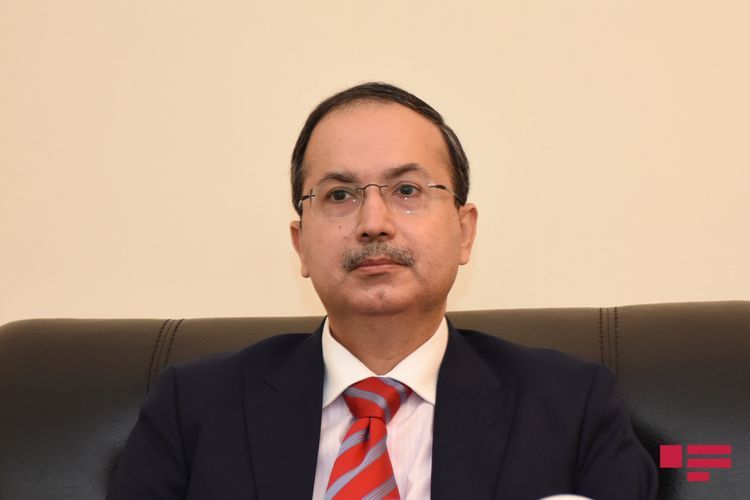
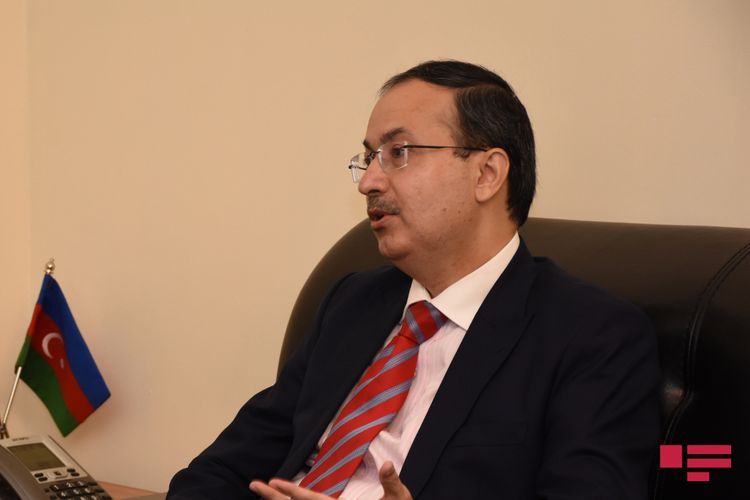
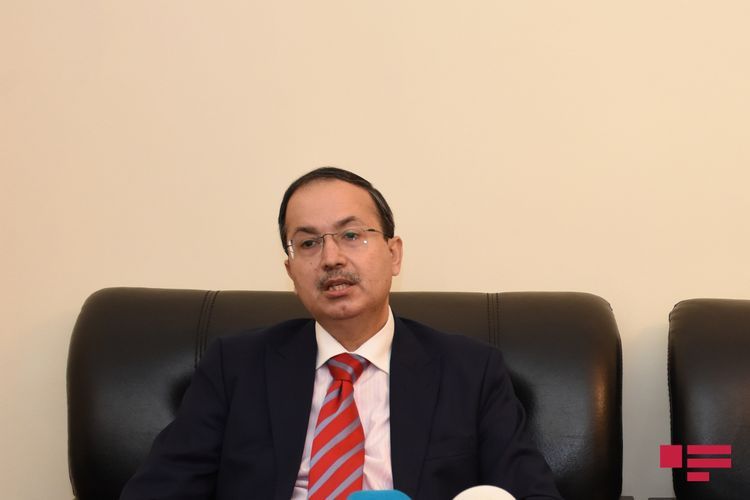
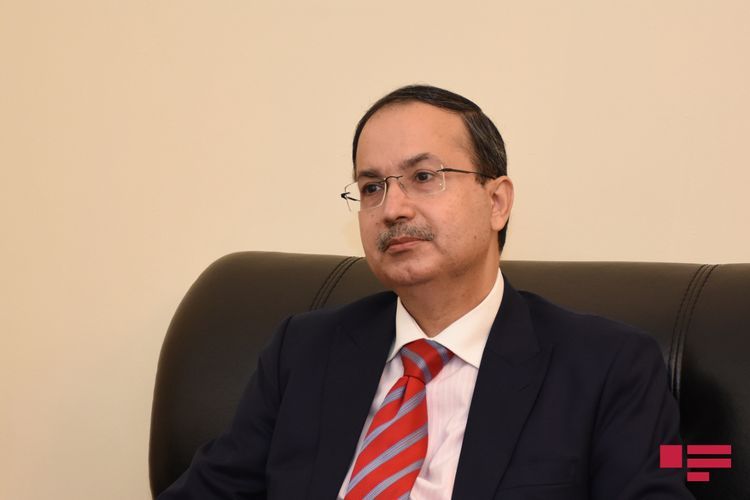
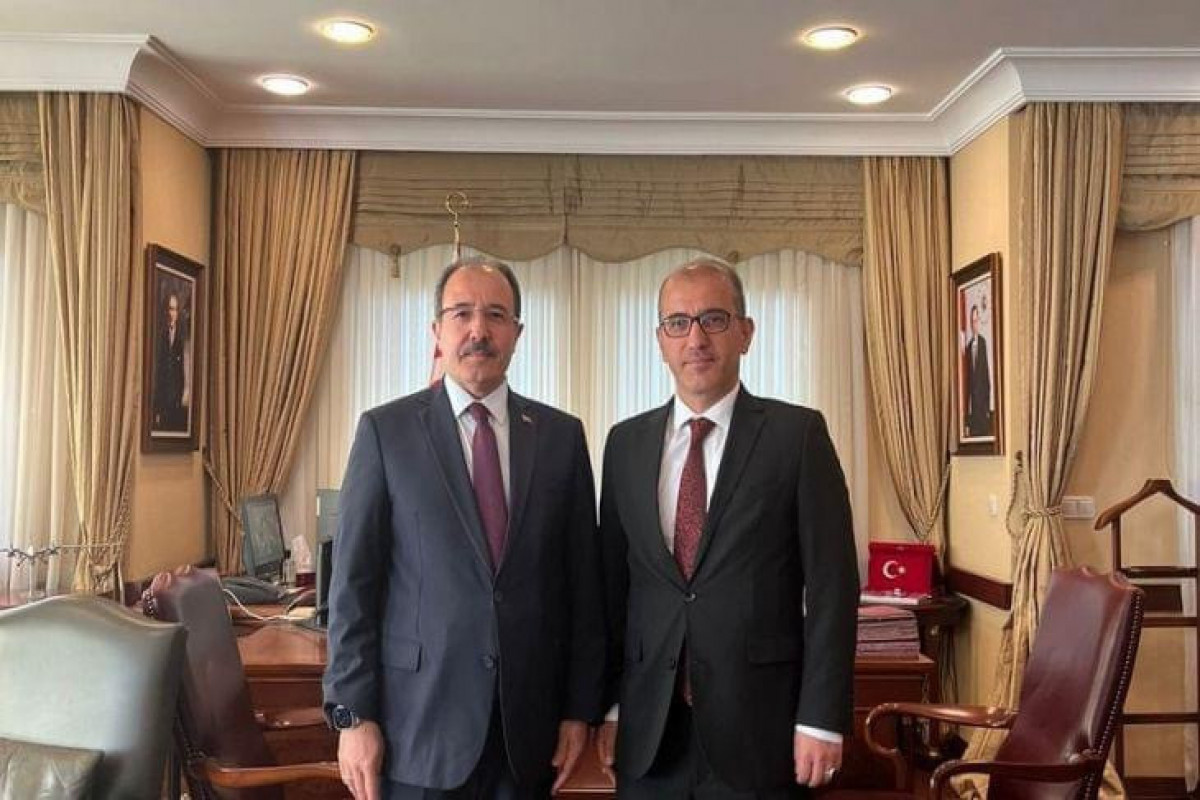
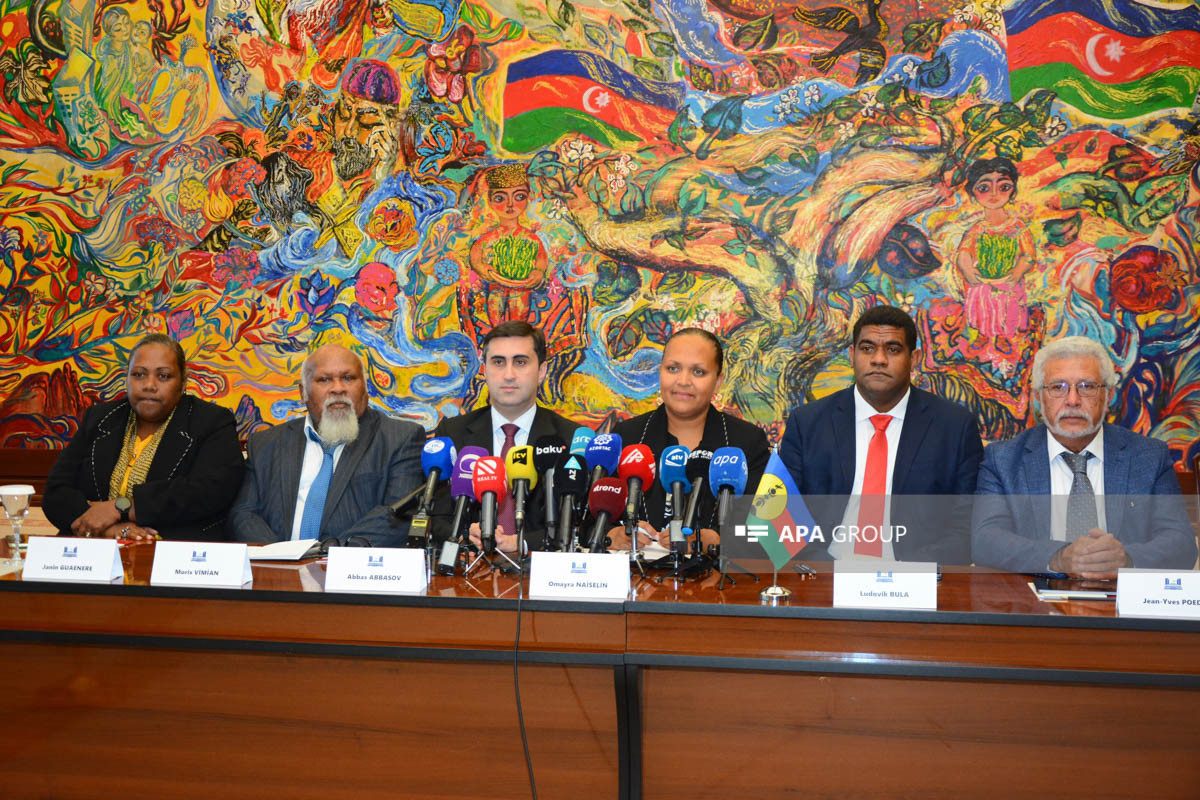
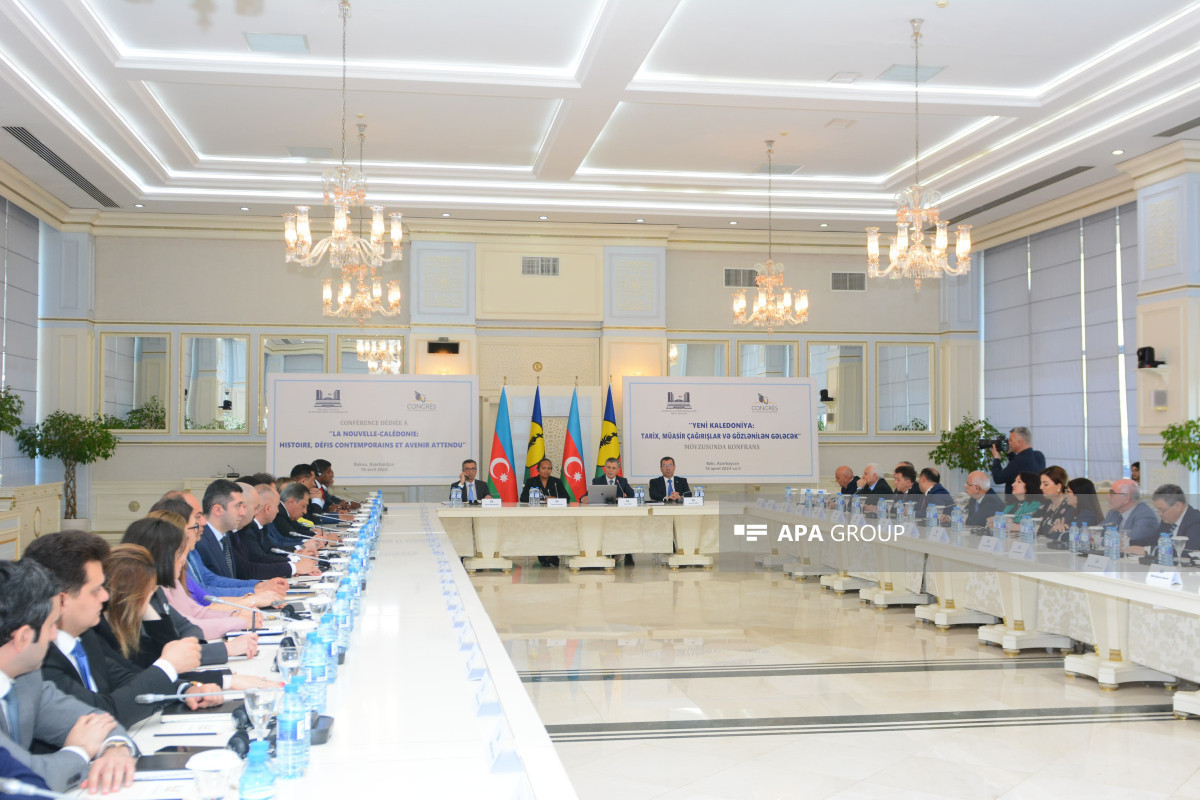 PHOTO'>
PHOTO'>
